What is fundamental wave?
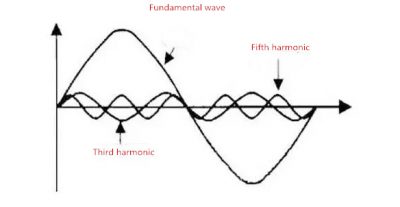
Fundamental wave
The frequency of the voltage or current that changes periodically in the power network is the fundamental wave (also known as the primary wave). The specified frequency of our power grid is 50Hz, so the fundamental wave is 50Hz.
What are harmonics?

Harmonic Wave
Except for the fundamental wave (50Hz) in the power network, any periodic voltage or current signal whose frequency is higher than the fundamental wave (50Hz) is called a harmonic. In the power grid or circuit, the harmonics generated by voltage are voltage harmonics; the harmonics generated by current are current harmonics.
Harmonic classification:
• Integer harmonics: refers to harmonics whose frequency is an integer (jump 1) times the fundamental frequency, ie 2, 3, 4, 5, 6, 7, 8, 9, 10 and other harmonics.
• Even harmonics: refers to the harmonics whose frequencies are even times the fundamental frequency, such as circle, source, 6, 8, 10, etc.
• Odd harmonics: refers to harmonics whose frequencies are odd multiples of the fundamental frequency such as 3, 5, 7, 9, and 11.
• Positive sequence harmonics: The harmonic order is 3k+1 (k is a positive integer), that is, the 4th, 7th, 10th and other harmonics.
• Negative sequence harmonics: The harmonic order is 3k-1 (k is a positive integer), ie the 2nd, 5th, 8th harmonics.
• Zero-sequence harmonics: refers to harmonics whose frequency is an integer multiple of the fundamental frequency of 3, such as the 3rd, 6th, 9th, 12th, and 15th harmonics.
• High frequency harmonics: refers to the harmonics whose frequency is between 3MHz and 30MHz.
What is harmonic current?
Strictly speaking, harmonics refer to the electricity whose frequency is an integer multiple of the fundamental wave contained in the current. Generally speaking, it refers to the Fourier series decomposition of the periodic non-sinusoidal electricity, and the rest is generated by the current greater than the frequency of the fundamental wave. power. Widely speaking, since the effective component of the AC power grid is a single frequency of the power frequency, any component that is different from the power frequency can be called a harmonic.

Effects of Harmonic Currents:
Due to the development of semiconductor converter technology, the utilization efficiency of electric energy has been greatly improved, but the use of a large number of switching power supplies and thyristors has also led to the generation of harmonic currents. Harmonic current is very harmful. On the one hand, it increases the burden on the neutral line of the power grid. The harmonic current generated by a large number of nonlinear loads will flow through the neutral line and cause the neutral line to be overloaded. In severe cases, it will burn the neutral line and cause a fire. It also increases the burden of high-voltage capacitors in the power grid. The transformers of power grid users are generally connected with high-voltage capacitors to filter out high-frequency interference from the power grid, and the high-frequency harmonic current flowing through the capacitor will cause the temperature to rise or even explode. In addition, the harmonic current It can also cause grid voltage waveform distortion, thereby affecting the stable operation of other electrical products. It is precisely to protect the power quality of the shared power grid and ensure the normal operation of the power grid and user equipment that IEC proposes harmonic current limit standards.
EN61000-3-02 Standard Product Classification:
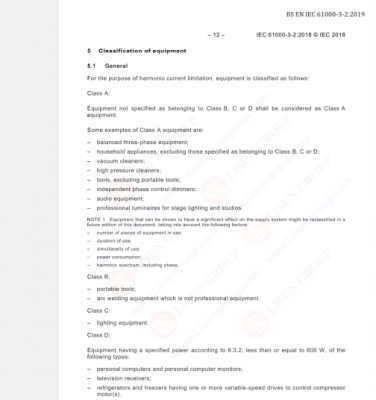
EN61000-3-02 Standard Product Classification
IEC61000-3-2 2018 Electromagnetic Compatibility (EMC) – Part 3-2: Limits – Harmonic Current Emission Limits (equipment input current ≤ 16A/phase) divides equipment into four categories A, B, C and D .
Test Standard for Harmonic Currents:
In the category of low-voltage power supply equipment, the product standards involved are: IEC61000-3-2 (rated current less than 16A); IEC61000-3-4 (rated current greater than 16A); IEC61000-3-12 (rated current greater than 16A and less than 75A) ). Among the corresponding EN standards, only EN61000-3-2 and EN61000-3-12 are listed in the official gazette of the EU EMC harmonized standard, so there is no corresponding harmonized standard for equipment larger than 75A. The basic standard involving test methods is IEC61000-4-7.
Test method for harmonic current:
1. LS2050C-IEC Digital Power Meter (High Accuracy Model
2. Test frequency band: 2~40th harmonic, ie 100Hz~1kHz.
3. Limit standard of harmonic current test: IEC61000-3-2 has different limits according to the classification of products ClassA/B/C/D.
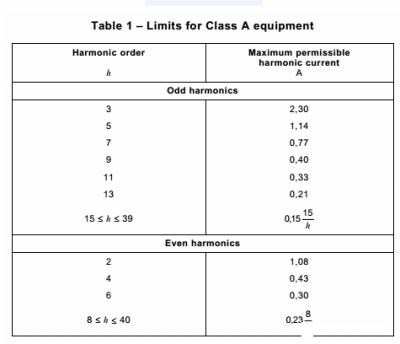
Class A equipment
Class B equipment: the test limit is not greater than 1.5 times the corresponding limit of Class A equipment;
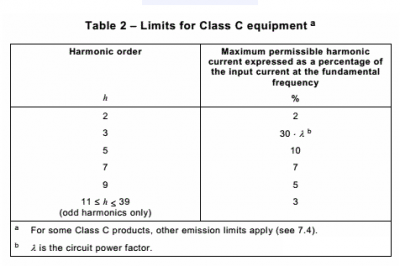
Class C Equipment

Class D Equipment
LISUN LS2050 High Accuracy AC and DC Power Meter is a new generation intelligent product which adopts digital sampling technology to analysis of the waveform. Fully meet LM-79-19 requirements and the frequency Range: 0.5Hz-100kHz. The software can measure U(AC&DC), I(AC&DC), P(AC&DC), Power Factor PF(AC), Displacement Factor DF(AC) and Total 0-50 Harmonic in IEC/CSA. The LS2050C-IEC hardware is the same as LS2050C, but with additional software to fully meet EN/IEC61000-3-2:2019 Pls. check the test report as below:

Harmonic current test report

Current Test report
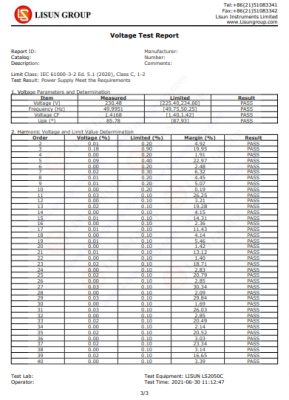
Voltage Test Report
Lisun Instruments Limited was found by LISUN GROUP in 2003. LISUN quality system has been strictly certified by ISO9001:2015. As a CIE Membership, LISUN products are designed based on CIE, IEC and other international or national standards. All products passed CE certificate and authenticated by the third party lab.
Our main products are Goniophotometer, Integrating Sphere, Spectroradiometer, Surge Generator, ESD Simulator Guns, EMI Receiver, EMC Test Equipment, Electrical Safety Tester, Environmental Chamber, Temperature Chamber, Climate Chamber, Thermal Chamber, Salt Spray Test, Dust Test Chamber, Waterproof Test, RoHS Test (EDXRF), Glow Wire Test and Needle Flame Test.
Please feel free to contact us if you need any support.
Tech Dep: Service@Lisungroup.com, Cell/WhatsApp:+8615317907381
Sales Dep: Sales@Lisungroup.com, Cell/WhatsApp:+8618117273997
Your email address will not be published. Required fields are marked *